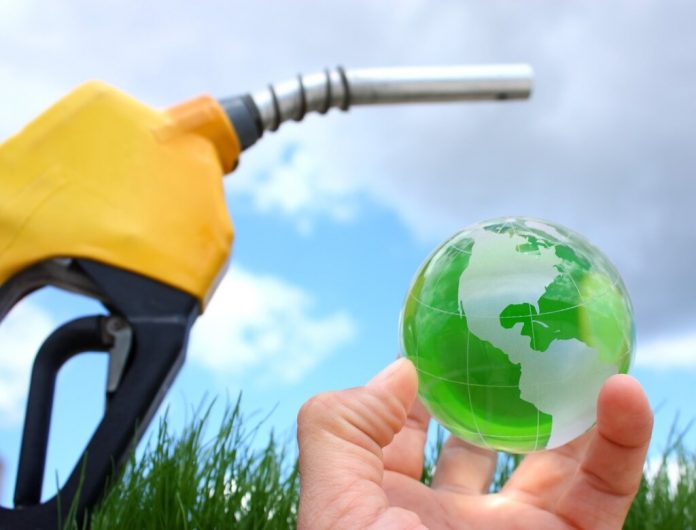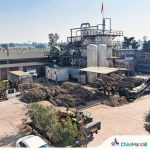India is undergoing a profound industrial transformation, one that positions it to become a global leader in bio-manufacturing. As sustainability, circular economies, and biotechnology rise to the top of national agendas worldwide, India’s vast agricultural base, robust scientific talent, and progressive policy frameworks present a unique opportunity to lead this evolution. The country is no longer merely a cost-effective manufacturing destination; it is actively reshaping global conversations around green growth and regenerative industries.
India’s bioeconomy has grown over 16-fold in the past decade, from $10 billion in 2014 to $165.7 billion in 2024, and is projected to reach $300 billion by 2030. This exceptional expansion reflects the nation’s focused efforts to position biotechnology as a cornerstone of sustainable economic growth and innovation. Recent initiatives such as the BioE3 (Biotechnology for Economy, Environment, and Employment) policy aim to accelerate this growth by transforming India into a global biotech powerhouse by fostering high-performance biomanufacturing and addressing key pillars of the economy, environment, and employment. It further supports the goal of achieving $1 trillion bioeconomy by 2047 by promoting regenerative biomanufacturing and encouraging a shift from chemical-based industries to sustainable bio-based models.
One of the key pillars of this transformation is the bioenergy sector. Ethanol blending has increased from 1.53% in 2014 to 18.08% as of March 9, 2025, with a target of 20% by 2025. This shift has already saved more than 1.13 lakh crore in foreign exchange and reduced crude oil imports by 193 lakh tonnes. The availability of E20 fuel at more than 15,600 retail outlets and the expansion into second-generation ethanol production underscore bioenergy’s role as a catalyst for India’s circular economy.
To further accelerate the growth of the biofuels sector and achieve enhanced ethanol blending by 2025, the Indian Government has implemented several measures since 2014. These include expanding feedstock for ethanol production, establishing an administered price mechanism for sugarcane-based ethanol under the Ethanol Blended Petrol (EBP) Programme, reducing the GST rate on ethanol to 5%, introducing various Ethanol Interest Subvention Schemes (EISS) during 2018-22 for ethanol production from molasses as well as grains, and facilitating Long Term Offtake Agreements (LTOAs) by Oil Marketing Companies (OMCs) with Dedicated Ethanol Plants (DEPs). Additionally, the Government launched the Pradhan Mantri JI-VAN Yojana to provide financial support for integrated bio-ethanol projects using lignocellulosic biomass and other renewable feedstocks.
The Indian Council of Agricultural Research (ICAR)- Indian Institute of Maize Research (IIMR) under its project ‘Enhancement of Maize Production in Catchment Area of Ethanol Industries’ also initiated programs promote maize as a major feedstock for grain-based ethanol supply under the EBP Programme, conducting training and demonstrations to enhance maize quality and yield. Furthermore, the Government introduced the Oilfields (Regulation and Development) Amendment Bill, 2024, aiming to increase domestic production of oil and gas, thereby reducing the country’s import dependence. Collectively, these developments highlight how bioenergy contributes to energy security, sustainability, and rural development—key pillars of India’s expanding bioeconomy.
Triveni Engineering & Industries Ltd.: Driving India’s Bio-Manufacturing Vision
As India’s bioeconomy gains momentum, Triveni Engineering & Industries Ltd. (TEIL) is playing a pivotal role in translating this potential into action. With over 93 years of legacy, TEIL is one of India’s largest integrated sugar and biofuel manufacturers. The Company has state-of-the-art distilleries spread across Muzaffarnagar (MZN) – 2 facilities, Sabitgarh (SBT), Milak Narayanpur (MNP), Rani Nangal (RNG) and Shamli in Uttar Pradesh. These facilities have the capability to produce Ethanol, Extra Neutral Alcohol (ENA), Rectified Spirit (RS) and Denatured Spirit (SDS). The Company utilises a mix of sugarcane-based feedstocks as well as grain. Distillers Dried Grain Solubles (DDGS), a co-product produced on grain operations is also sold to premium Institutions and has been well accepted in the market. The Company also manufactures Indian Made Indian Liquor (IMIL) and Indian Made Foreign Liquor (IMFL).
The Company utilises a mix of sugarcane-based feedstocks as well as grain. Distillers Dried Grain Solubles (DDGS), a co-product produced on grain operations is also sold to premium institutions and has been well accepted in the market. TEIL plays a pivotal role in achieving India’s ethanol blending goals by producing ethanol from a range of feedstocks, including grain, and sugarcane by-products such as molasses. Its multi-feed distilleries enhance flexibility, reduce dependency risks, and contribute significantly to India’s energy transition.
Technology as a Multiplier
TEIL’s contribution to India’s bio-manufacturing ambition is amplified by its adoption of advanced technologies. The Company’s operations are underpinned by research & development capabilities, excellence in manufacturing, and investments in world-class digital technologies. The Company is deploying Internet of Things (IoT) solutions across its supply chain to enable real-time tracking and improve operational efficiency, key enablers for modern, globally competitive bio-manufacturing.
Through its comprehensive sugarcane development programme, TEIL empowers over 3.5 lakh farmers with advanced agricultural practices. The Company uses GPS, satellite mapping, and drone-based chemical spraying to manage crop health. These efforts are aimed at not only increasing yield and reducing waste but also building resilient supply chains, contributing to the scalability of India’s bio-based industries.
Moreover, the Triveni Cane App—used by nearly 1.98 lakh farmers—provides real-time insights into soil health, fertiliser recommendations, and procurement logistics. TEIL’s initiative to introduce AI-driven communication tools to enhance farmer engagement and responsiveness further reflects its alignment with the digital-first vision needed for global bio-manufacturing leadership.
Sustainability as a Competitive Edge
TEIL’s bio manufacturing capabilities also aligns with India’s net zero goals. The Company’s 104.5 MW co-generation capacity in its sugar business allows it to significantly reduce its carbon footprint, meeting nearly all its captive power needs for its sugar units. By converting molasses into ethanol, fly ash into bricks, and press mud into organic manure, TEIL demonstrates how circular resource management can power industrial scale.
The Company’s approach to farming sustainability—ranging from trash mulching and soil testing to integrated pest management and intercropping—strengthens rural economies while making agricultural inputs for bio-manufacturing more reliable and sustainable. These initiatives not only improve farmer livelihoods but also enhance the resilience of bio-feedstock supply chains that global bio-manufacturing relies on.
TEIL ensures Zero Liquid Discharge (ZLD) through incineration boilers and creates value-added products like potash-rich ash from effluents. Use of geofencing and GPS for emission reduction in logistics, and compliance with ISO 14001 standards, further reinforce TEIL’s commitment to environment-first industrialisation.
The Road Ahead
India’s ambition to become a global bio-manufacturing hub requires scalable, sustainable models that deliver long-term impact. TEIL’s investments in technology, feedstock flexibility, digital farming, and renewable energy position it as a frontrunner in this transformation.
As bio-manufacturing evolves beyond ethanol into areas like bioplastics, green chemicals, and advanced biofuels, TEIL is laying the foundation for a broader bio-industrial future. With strong linkages to the rural economy, robust infrastructure, and a focus on innovation, the Company is well-equipped to support India’s next phase of industrial growth—one that is clean, inclusive, and globally competitive.












